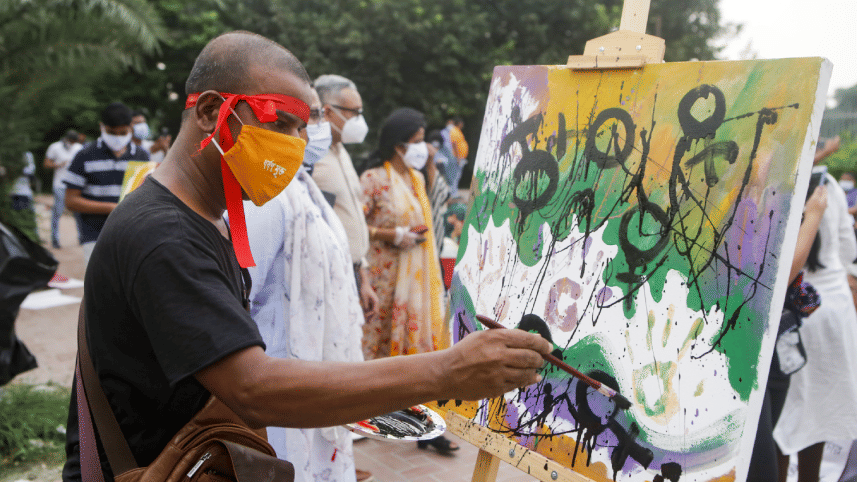Online Protests: A necessity or a distraction?

Last week, I received a message asking me to change my profile picture into a pitch-black square as a show of solidarity against the systemic sexual abuse women in our society have been subjected to. Later, I found that this particular action has led to divided opinion among the general masses, where some people feel such symbolic gestures are effective and others feel as if it is a trend that does little, and will eventually die out.
This wasn't the first time we have seen the materialisation of protest via non-physical means. We saw black square profile pictures and an internet blackout after George Floyd was subjected to police brutality. We also saw the #ChallengeAccepted Instagram trend of uploading black and white pictures that was used as a gesture of solidarity against femicides. The "Vogue Challenge" was another symbolic gesture that was used to promote women from all walks of life in the cover of Vogue Magazine for promoting inclusivity. So, the idea of galvanising people towards a cause by non-physical means isn't a new one, but has it been effective?
When asked about her opinion on the matter, Adhara Ayndrila, one of the main organisers of the "Movement Against Rape" event that took place in front of Viqarunnisa Noon School and College on October 8, says, "Physical protests require people to get out of their comfort zone and protest from the streets. On the other hand, the comfort of social media and the fluctuation of what goes viral from time to time can easily dilute the focus and priority of the movement. Online protests are most likely to be forgotten when something new comes up. It is a good tool to reaffirm the narrative within people who already support certain causes, thus the degree of impact overall is very little."
Similar concerns about the effectiveness of the protests has been raised over the years. But on the other side of the coin remains a segment of people for whom the choice for going out to protest isn't perhaps as clear a distinction as black and white.
Auroni Semonti Khan, Joint Convenor, Swatontro Jote, comments, "I feel like there can be many reasons as to why a person might not be able to join a protest physically – ongoing pandemic, family restrictions, inability to get days off from work, the list goes on. But the display of solidarity via social media helps to capture the attention of many people and give exposure to the issue."
The underlying assumption here is that reaching more people by getting more exposure is important for the movement. While some people feel like this exposure is often negative exposure, where the main message of the cause gets lost, other people disagree.
Auroni adds, "I don't think the increased level of exposure is bad exposure. Different people are influenced by different things. Our social circles are different. We can reach a lot of people using social media who otherwise wouldn't even know about our physical protests. Maybe by seeing so many people stand together for one cause will help create some level of deterrence even in terms of people's online behaviours. Maybe that one friend who has always been cracking inappropriate jokes online and sharing misogynistic memes will end up understanding the fault in their behaviour or at least think about the consequence of their actions due to repeated exposure."
While this seems like a long chain of behavioural change that stands on a "maybe", it is hard to deny that there exists a segment of people who are unable to access physical protests and a segment of people who spend a majority of their time online and thus are influenced by it the most. There perhaps isn't any one way of standing for a cause because the problem affects different people in different magnitudes. Thus, telling people that their efforts of trying to be a part of this online revolution is ineffective is perhaps not the best way to promote inclusivity and empowerment. At the same time, neither of the methods – physical or online protests – are a perfect substitute of the other.
If I were to draw a conclusion based on my exposure to both sides of the issue, I would say that online protests are definitely important and effective, even if it is for a limited time frame. The reach of social media, the display of solidarity and the increased level of access makes it a weapon to be used to stand against oppression. Like every weapon, this can backfire for sure but that does not mean that we should be shunning people who try to be a part of the revolution and otherwise wouldn't have been able to do so.
Megha is a third year Marketing Student. Send her doggo memes at megharahman26@gmail.com
 For all latest news, follow The Daily Star's Google News channel.
For all latest news, follow The Daily Star's Google News channel.
Comments